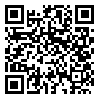Volume 24, Issue 94 (8-2025)
QJCR 2025, 24(94): 255-232 |
Back to browse issues page
Download citation:
BibTeX | RIS | EndNote | Medlars | ProCite | Reference Manager | RefWorks
Send citation to:



BibTeX | RIS | EndNote | Medlars | ProCite | Reference Manager | RefWorks
Send citation to:
Ameri N, Najafi M. The Effectiveness of Mindfulness Training based on Self-Compassion on Self-Criticism, Shame and Perceived Stigma in People with Drug-Dependence. QJCR 2025; 24 (94) : 8
URL: http://irancounseling.ir/journal/article-1-2120-en.html
URL: http://irancounseling.ir/journal/article-1-2120-en.html
PhD in Psychology, (Corresponding Author), Associate Professor, Department of Clinical Psychology, Faculty of Psychology and Educational Sciences, Semnan University, Semnan, Iran.
Abstract: (2589 Views)
Aim: This study aimed to determine the effectiveness of self-compassion-based mindfulness training on self-criticism, shame, and perceived stigma among substance-dependent individuals. Methods: The research employed a quasi-experimental design with pre-test and post-test measures and a control group. The statistical population comprised all substance-dependent patients undergoing methadone maintenance treatment who attended the Soroush Addiction Treatment Center in Shahrood in 2024. From this population, 32 individuals were selected through convenience sampling and randomly assigned to an experimental group (n = 16) and a control group (n = 16). Participants completed the Self-Criticism Levels Scale (Gilbert et al., 2004), the External Shame Scale (Goss et al., 1994), and the Substance Use Stigma Scale (Loma et al., 2010) in both pre-test and post-test stages. The experimental group received eight 90-minute sessions of mindfulness training based on self-compassion, conducted weekly. Data were analyzed using multivariate analysis of covariance (MANCOVA). Findings: The results showed significant differences between the two groups. Mindfulness training based on self-compassion significantly reduced self-criticism components, including self-inadequacy (F = 21.22, p = .001), self-loathing (F = 23.24, p = .001), and self-confidence (F = 31.21, p = .001); shame components, including feelings of inferiority (F = 30.31, p = .001), feelings of emptiness (F = 14.51, p = .001), and shame for making mistakes (F = 8.70, p = .007); as well as the internal stigma variable (F = 9.11, p = .006) among substance-dependent participants. Conclusion: The findings suggest that addiction specialists can utilize mindfulness training based on self-compassion to effectively reduce self-criticism, alleviate shame, and decrease perceived stigma among individuals with substance dependence.
Article number: 8
Type of Study: Research |
Subject:
Rehabilitation counseling
Received: 2024/10/1 | Accepted: 2025/08/4 | Published: 2025/12/7
Received: 2024/10/1 | Accepted: 2025/08/4 | Published: 2025/12/7
Send email to the article author
| Rights and permissions | |
 |
This work is licensed under a Creative Commons Attribution-NonCommercial 4.0 International License. |






